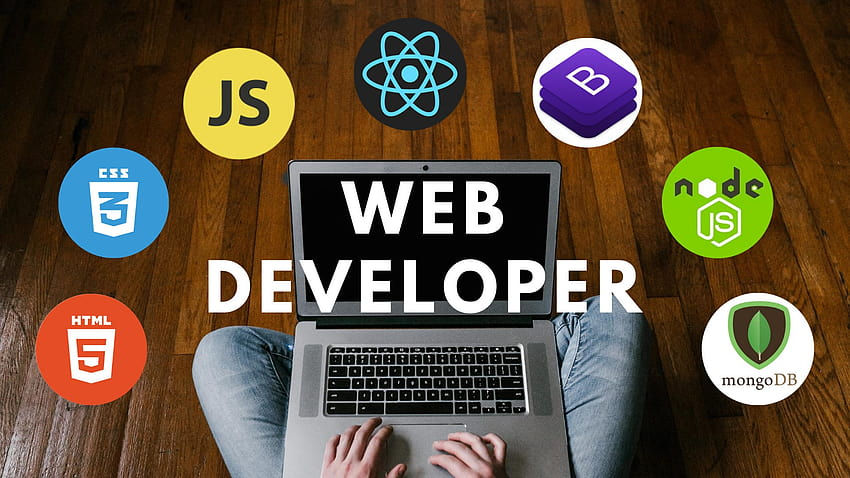Mastering the Full Stack: Essential Skills for Today's Developers
- ashik imam
- Feb 22, 2024
- 3 min read
Introduction:
In today's fast-paced digital landscape, the demand for skilled full stack developers is at an all-time high. With the constant evolution of technology and the increasing complexity of web applications, mastering the full stack has become essential for developers aiming to stay competitive and relevant in the industry. In this comprehensive guide, we'll explore the essential skills that today's developers need to master the full stack, from frontend to backend and everything in between.
Understanding Full Stack Development
Full stack development refers to the practice of working on both the frontend and backend of web applications. A full stack developer is proficient in multiple programming languages, frameworks, and tools required to build complete software solutions. Unlike frontend or backend developers who specialize in one area, full stack developers have a broader skill set, allowing them to handle all aspects of application development.
Essential Skills for Frontend Development
Frontend development focuses on creating the user interface and user experience of web applications. To excel in frontend development, developers must possess the following essential skills:p
HTML (Hypertext Markup Language): HTML is the foundation of web development and is used to create the structure and content of web pages.
CSS (Cascading Style Sheets): CSS is used to style the HTML elements and define the layout, colors, and typography of web pages.
JavaScript: JavaScript is a versatile programming language that adds interactivity and dynamic behavior to web pages. It's essential for creating interactive features such as dropdown menus, form validations, and animations.
Frontend Frameworks (e.g., React, Angular, Vue.js): Frontend frameworks allow developers to build complex web applications more efficiently by providing pre-built components and state management solutions.
Responsive Design: With the increasing use of mobile devices, developers must understand responsive design principles to ensure that their web applications are accessible and usable across different screen sizes.
Essential Skills for Backend Development
Backend development focuses on building the server-side logic and database interactions of web applications. To excel in backend development, developers must possess the following essential skills:
Server-Side Languages (e.g., JavaScript/Node.js, Python, Ruby, Java): Backend developers use server-side languages to handle HTTP requests, process data, and generate dynamic content for web applications.
Database Management (e.g., SQL, NoSQL): Backend developers work with databases to store and retrieve data for web applications. They must understand database management systems and query languages to perform CRUD (Create, Read, Update, Delete) operations efficiently.
API Design and Integration: APIs (Application Programming Interfaces) allow different software systems to communicate with each other. Backend developers design and integrate APIs to enable communication between the frontend and backend components of web applications.
Authentication and Authorization: Security is a critical aspect of backend development. Developers must implement authentication and authorization mechanisms to ensure that only authorized users can access certain parts of the application.
Server Management and Deployment: Backend developers are responsible for deploying web applications to production servers and ensuring their smooth operation. They must have knowledge of server management tools and deployment strategies to deploy applications securely and efficiently.
Additional Skills for Full Stack Development
In addition to frontend and backend development skills, full stack developers should also possess the following additional skills:
Version Control (e.g., Git): Version control systems allow developers to track changes to their codebase, collaborate with other developers, and revert to previous versions if needed.
Command Line Proficiency: Full stack developers should be comfortable working in a command-line interface to perform various development tasks, such as running servers, executing scripts, and managing files.
Basic DevOps Knowledge: DevOps practices involve automating the deployment, monitoring, and scaling of applications. Full stack developers should have basic knowledge of DevOps principles and tools to streamline the development and deployment process.
Problem-Solving Skills: Full stack development often involves troubleshooting and debugging complex issues. Developers should have strong problem-solving skills to identify and resolve issues efficiently.
Conclusion:
Becoming a proficient full stack developer demands a multifaceted skill set and an unwavering dedication to advancement. Through the acquisition of pivotal skills in both frontend and backend development, coupled with expertise in version control, command-line operations, and fundamental DevOps principles, developers can establish themselves as adaptable and indispensable professionals in the contemporary job landscape. Whether you're an experienced developer seeking to broaden your expertise or a newcomer with aspirations in web development, mastering the full stack represents a fulfilling voyage, teeming with prospects for creativity and progression. Enroll today in the best online full stack developer training course in Kanpur, Dehradun, Agra, Delhi, Noida, and every corner of India, and embark on a transformative journey towards unlocking your full potential in the dynamic realm of web development.







Comments